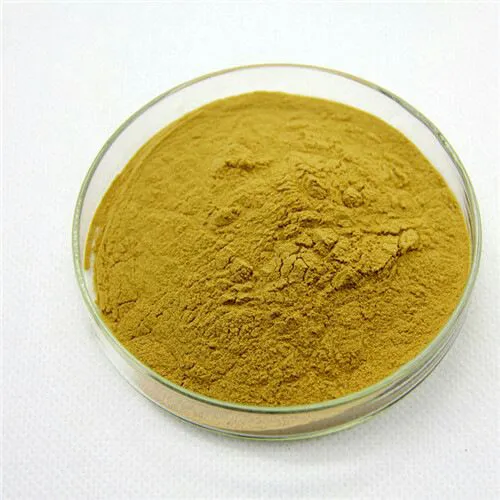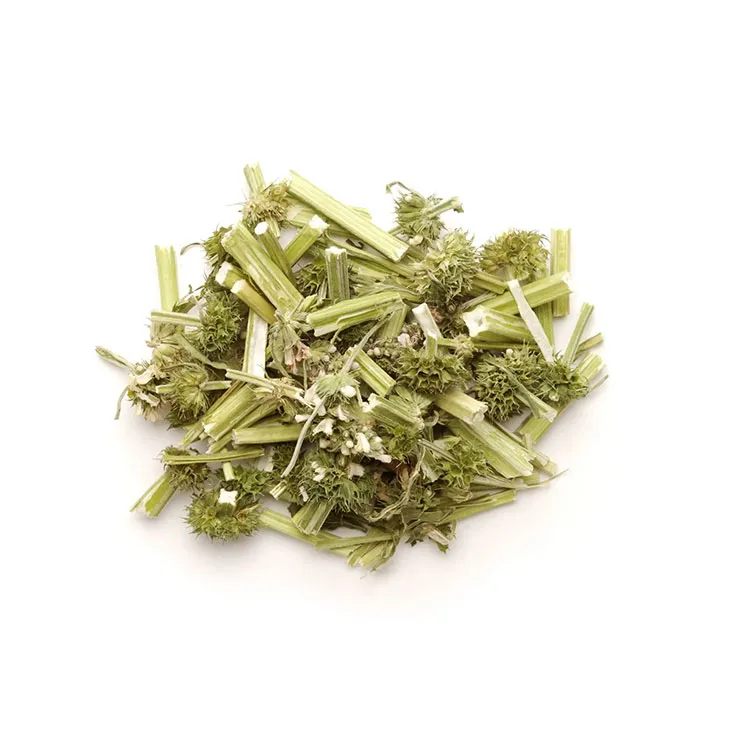- 0086-571-85302990
- sales@greenskybio.com
Is motherwort extract beneficial for diabetes? Are these all safe and applicable for diabetic patients?
2024-11-11

1. Introduction
Diabetes is a chronic metabolic disorder that affects millions of people worldwide. It is characterized by high blood glucose levels due to either insufficient insulin production or ineffective insulin utilization. As researchers strive to find new and effective treatments, natural products like Motherwort Extract have come under scrutiny. Motherwort (Leonurus cardiaca) has a long history of use in traditional medicine for various ailments. But does it really have a role in diabetes management? And more importantly, is it safe for diabetic patients? This article aims to explore these questions in depth.

2. Motherwort Extract and Insulin Sensitivity
2.1. The Concept of Insulin Sensitivity Insulin sensitivity refers to how responsive the body's cells are to the action of insulin. In a healthy state, insulin binds to its receptors on cells, allowing glucose to enter and be used for energy or stored. In diabetes, especially type 2 diabetes, cells often become resistant to insulin, leading to elevated blood sugar levels.
2.2. Potential Effects of Motherwort Extract on Insulin Sensitivity Some studies suggest that motherwort extract may play a role in improving insulin sensitivity. It may contain bioactive compounds that can interact with cellular signaling pathways involved in insulin action. For example, certain flavonoids present in motherwort might enhance the phosphorylation of insulin receptor substrate proteins, which is an important step in the insulin signaling cascade. This could potentially lead to better uptake of glucose by cells, reducing blood sugar levels. However, more research is needed to fully understand the mechanisms and confirm these effects.

3. Impact on Blood Sugar Levels
3.1. Regulation of Glucose Metabolism Motherwort extract could potentially influence blood sugar levels through multiple mechanisms related to glucose metabolism. It may affect the activity of enzymes involved in glucose production in the liver, such as glycogen phosphorylase. By inhibiting this enzyme, it could reduce the release of glucose from glycogen stores, thereby lowering blood glucose levels.
3.2. Clinical and Pre - clinical Evidence In pre - clinical studies on animal models of diabetes, motherwort extract has shown some promising results in terms of blood sugar regulation. For instance, in diabetic rats, treatment with motherwort extract led to a significant decrease in fasting blood glucose levels over a period of weeks. However, human clinical trials are still in their early stages, and the results so far are not conclusive. Some small - scale trials have reported a mild reduction in blood sugar levels in diabetic patients taking motherwort extract, but larger and more comprehensive studies are required to establish its efficacy.

4. Prevention of Diabetes Complications
4.1. Diabetic Complications Diabetes is associated with a range of complications, including cardiovascular diseases, neuropathy, nephropathy, and retinopathy. These complications are often related to long - term exposure to high blood sugar levels and associated metabolic derangements.
4.2. Role of Motherwort Extract in Complications Prevention Motherwort extract may have potential in preventing diabetes complications. Its antioxidant properties could be one of the key factors. Oxidative stress is known to play a significant role in the development of diabetic complications. The flavonoids and phenolic compounds in motherwort extract can scavenge free radicals, reducing oxidative stress. This, in turn, may protect the blood vessels, nerves, and other tissues from damage. For example, by reducing oxidative stress in the retina, it might help prevent diabetic retinopathy. However, the evidence for its effectiveness in preventing specific complications in humans is still limited and requires further investigation.

5. Safety Considerations
5.1. Dosage Determining the appropriate dosage of motherwort extract is crucial for its safe use in diabetic patients. In general, the dosage used in pre - clinical and clinical studies has varied widely. Too low a dosage may not produce the desired therapeutic effects, while too high a dosage could potentially lead to adverse effects. For example, in some studies, dosages ranging from 500 - 1500 mg per day have been tested, but the optimal dosage for diabetes management is yet to be clearly defined.
5.2. Patient's Individual Health Status The safety of motherwort extract also depends on the individual health status of the patient. Diabetic patients often have other co - morbidities such as hypertension, heart disease, or kidney problems. Motherwort may interact with medications used to treat these conditions. For instance, if a diabetic patient is taking blood - thinning medications, motherwort extract, which may also have mild anti - coagulant properties, could potentially increase the risk of bleeding. Therefore, it is essential to consider the patient's overall health profile before recommending motherwort extract.
5.3. Long - term Use Implications Long - term use of motherwort extract in diabetic patients raises several concerns. There is a lack of long - term safety data in this population. Prolonged use may lead to cumulative effects, either positive or negative. For example, continuous exposure to the bioactive compounds in motherwort could potentially cause liver or kidney toxicity in some individuals, although there is currently no conclusive evidence for this. Additionally, long - term use may also lead to the development of tolerance, reducing the effectiveness of the extract over time.
6. Conclusion
Motherwort extract shows some potential in diabetes management, particularly in terms of improving insulin sensitivity, regulating blood sugar levels, and potentially preventing complications. However, the evidence is still far from conclusive, and more research, especially large - scale human clinical trials, is needed. Regarding safety, factors such as dosage, individual health status, and long - term use implications need to be carefully considered. Diabetic patients should not start using motherwort extract without consulting their healthcare providers. Overall, while motherwort extract holds promise, more work is required to determine its true value and safety in the context of diabetes treatment.
FAQ:
Question 1: How might motherwort extract improve insulin sensitivity?
Some studies suggest that certain compounds in motherwort extract may interact with cellular mechanisms related to insulin signaling. It could potentially enhance the ability of cells to respond to insulin. However, more research is needed to fully understand the exact pathways and mechanisms involved. For example, it might modulate the activity of proteins that are crucial for insulin - mediated glucose uptake, but at present, this is still a subject of investigation.
Question 2: Can motherwort extract directly lower blood sugar levels?
There is some evidence indicating that motherwort extract may have an impact on blood sugar levels. It could potentially influence the body's glucose metabolism through various ways, such as affecting the function of the liver in glucose production or the uptake of glucose by peripheral tissues. But it's not clear - cut, and individual responses may vary. In addition, the extent of its hypoglycemic effect, if any, may depend on factors like the form of the extract and the dosage used.
Question 3: What are the potential benefits of motherwort extract in preventing diabetes complications?
Motherwort extract may have antioxidant properties. In the context of diabetes, oxidative stress is often elevated, which can contribute to the development of complications such as nerve damage and cardiovascular problems. By reducing oxidative stress, motherwort extract might help in preventing or delaying these complications. Also, it could potentially have anti - inflammatory effects, which is relevant as inflammation also plays a role in diabetes - related complications.
Question 4: Is motherwort extract safe for all diabetic patients?
No, it is not safe for all diabetic patients. Patient's individual health status is a crucial factor. For example, those with liver or kidney problems may need to be cautious as the extract may be metabolized and excreted through these organs. Also, some diabetic patients may be taking other medications, and there could be potential interactions between motherwort extract and these drugs. Pregnant or breastfeeding diabetic women should also avoid using it as its safety in these situations has not been established.
Question 5: What is the appropriate dosage of motherwort extract for diabetic patients?
Currently, there is no well - established standard dosage for diabetic patients. Dosage may depend on various factors including the patient's overall health, the severity of diabetes, and other concurrent medications. In general, starting with a low dose and gradually increasing while closely monitoring for any adverse effects is a more cautious approach. However, more research is required to determine an optimal and safe dosage range specifically for diabetes treatment.
Related literature
- The Potential of Motherwort in Metabolic Disorders: A Review"
- "Motherwort Extract: Pharmacological Properties and Implications for Diabetes Management"
- "Safety and Efficacy of Herbal Extracts in Diabetes: A Focus on Motherwort"
- ▶ Hesperidin
- ▶ Citrus Bioflavonoids
- ▶ Plant Extract
- ▶ lycopene
- ▶ Diosmin
- ▶ Grape seed extract
- ▶ Sea buckthorn Juice Powder
- ▶ Fruit Juice Powder
- ▶ Hops Extract
- ▶ Artichoke Extract
- ▶ Mushroom extract
- ▶ Astaxanthin
- ▶ Green Tea Extract
- ▶ Curcumin
- ▶ Horse Chestnut Extract
- ▶ Other Product
- ▶ Boswellia Serrata Extract
- ▶ Resveratrol
- ▶ Marigold Extract
- ▶ Grape Leaf Extract
- ▶ New Product
- ▶ Aminolevulinic acid
- ▶ Cranberry Extract
- ▶ Red Yeast Rice
- ▶ Red Wine Extract
-
Artichoke Extract
2024-11-11
-
Passionflower Extract
2024-11-11
-
Dandelion Leaf Extract
2024-11-11
-
Red Vine Extract
2024-11-11
-
Polygonum Cuspidatum Extract
2024-11-11
-
Curcuma Longa Extract
2024-11-11
-
Soy Extract
2024-11-11
-
Andrographis Paniculata Extract Powder
2024-11-11
-
Senna Leaf Extract
2024-11-11
-
Chaste Berry Extract
2024-11-11





















